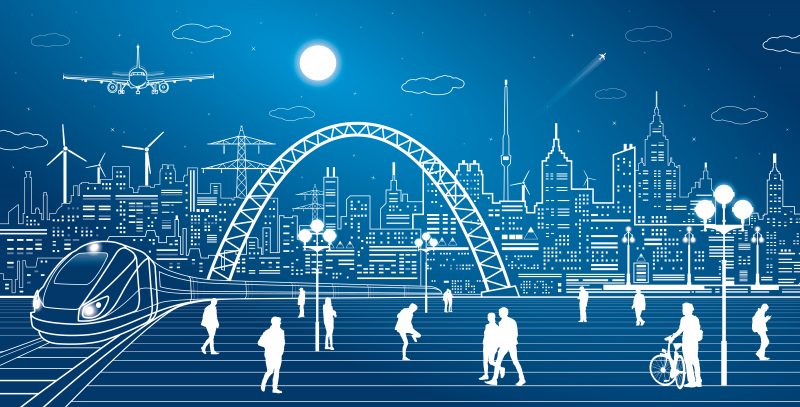The two main reasons for the electrification of railroads were to boost train performance, and to reduce the thick plumes of toxic exhaust that were particularly dangerous inside tunnels and while passing through towns. Now, new hydrogen-based locomotive technology offers the benefits of electrification without costs.
Modern trains no longer burn coal, but while diesel-powered locomotives produce significantly less pollution that coal engines, they are still a high-emission form of transportation, and the fact that they must be refueled frequently adds to the costs. Aside from the air pollution that they produce, the noise pollution can be alarming to say the least.
More cost effective, fuel efficient and clean-burning hydrogen trains, however, are poised to be the next step in locomotive evolution, and are already starting to revolutionize rail transport.
The Hydrogen Train: A Next-Gen Steam Engine
At the Innotrans Show in Berlin, French manufacturer Alstom unveiled its version of a hydrogen train. Called the “Coradia iLint”, Alstrom revived this name in reference to its classic Coradia Lint regional train. While their new hydrogen rain’s name and aesthetic design are eerily similar to its antiquated diesel counterpart, the similarities stop there.
Unlike diesel trains, the hydrogen powered Coradia iLint can travel 600 to 800 km without refueling, and is a zero-emission mode of transportation. Instead of burning materials like wood, coal or diesel like steam engines in the past, the Cordia iLint’s roof is equipped with a hydrogen tank and fuel cell that converts the hydrogen directly into electricity and emits only steam and condensed water.
“I believe that water will one day be employed as fuel…Water will be the coal of the future,” predicted fictional engineer Cyrus Harding from Jules Verne’s novel The Mysterious Island
The Cordua iLint can also reach a top speed of 140 km/h, but it’s hydrogen-powered engine is significantly quieter than its diesel counterparts.
Although similar trains have already been unveiled in Japan, Europe’s first hydrogen train will make its debut in Germany, and will start service at the end of this year on railways in Lower Saxony.
Alstom has not yet disclosed the price of their steampunk train, but the manufacturer has stated that the cost of their hydrogen-powered train will be less than the diesel options that require frequent refueling, or opting to for the electrification of an entire line. It’s true that hydrogen fuel cells already exist for cars and such options are expensive, but this is most likely because space in cars is limited, and therefore limits the amount of hydrogen that the vehicle can carry. Trains, on the other hand, do not have the same space issue.
The Little Engine that Could
Hydrogen trains also give developing countries without rail lines or electrified railways the option to skip the petroleum phase, and jump right to cost-effective and clean technologies that accelerate infrastructural development in the most sustainable way.
As petroleum reserves continue to decrease and the cost of oil increases, alternative energy sources are crucial. Zero-emission, cost-effective and high performance, hydrogen-powered engines like the one that will power the Cordia iLint have the potential to revolutionize not just rail transport, but transportation generally.
Clean and practically inexhaustible energy in a quiet little engine: a hydrogen train seems to have all the makings to be a miracle solution. In a time of climate change and fossil fuels depletion, hydrogen-powered engines have the potential to effectively and efficiently replace petroleum based engines just about everywhere, from factory floors to home garages.



















Comments (0)
Most Recent